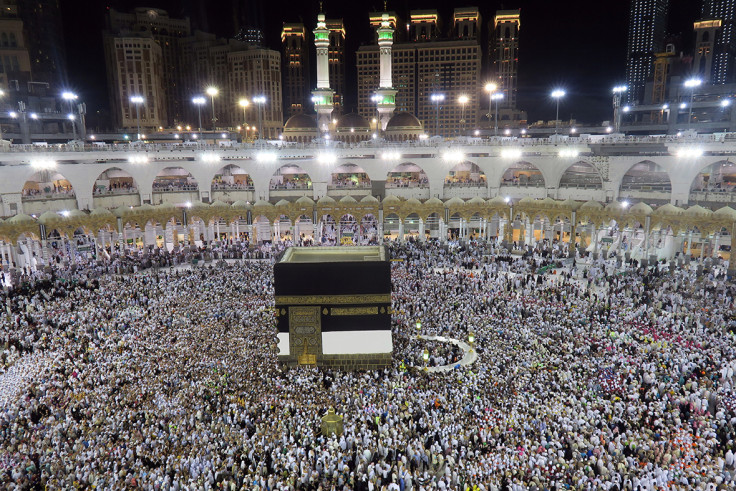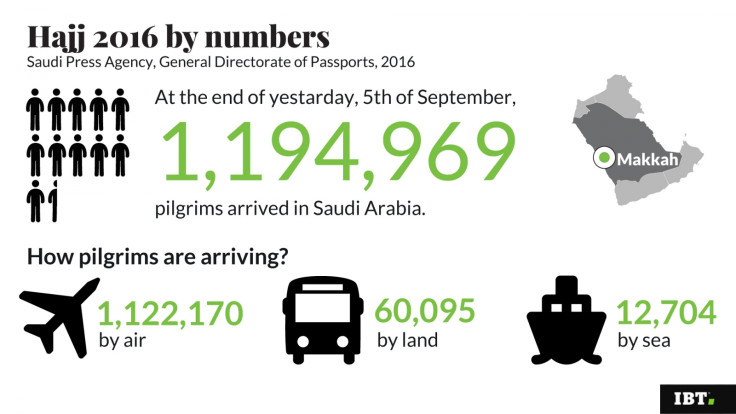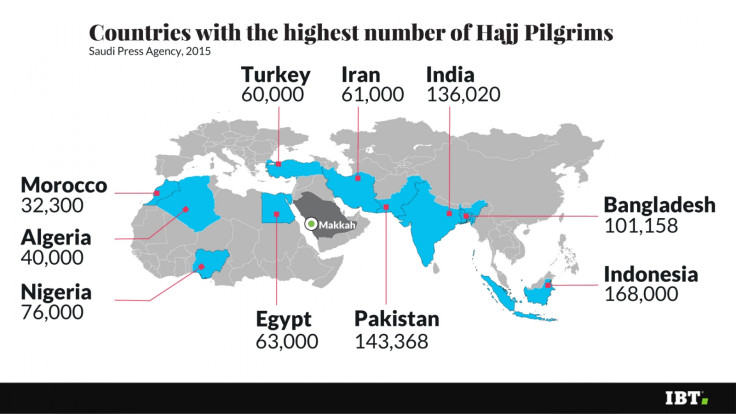Hajj 2016: Annual Islamic pilgrimage to Mecca in numbers
Muslims are travelling to Saudi Arabia for the annual pilgrimage, which this year starts on 9 September.

Muslims around the world will travel to the Saudi Arabian cities of Mecca and Medina this week for the annual Hajj pilgrimage, one of the largest religious gatherings in the world. Hajj will begin on Friday 9 and end on Wednesday 14 September.
The journey to Mecca is one of the five pillars of Islam, a spiritual pilgrimage that every adult must perform at least once in their lives if they are physically and financially able to do so.

It takes place depends on the Islamic calendar, which is based on the lunar year, and the pilgrimage occurs in the last month of Dhu al-Hijjah.
Ahead of this year's Hajj, here are the numbers behind the annual pilgrimage:
3.7 million: Estimated number of people who attend the Hajj each year.
Five: Attending the Hajj is one of the five pillars of Islam.
Five: Pilgrims perform rituals based on the Prophet Muhammad for five days.
180: Muslims travel to Mecca from more than 180 countries.
25,000: Up to 25,000 British Muslims travel annually to Mecca for Hajj.
Three: Pilgrims throw stones at three pillars (Jamaraat) in a ritual symbolic of "stoning the devil".
49: For the ritual, pilgrims collect 49 stones in Muzdalifa to be throw at the three pillars.
Two: Male pilgrims traditionally wear two cotton sheets to symbolise equality.
Seven: The number of times pilgrims walk around the Kaaba, the most sacred site in Islam.
277: Mecca is at an elevation of 277 m above sea level.
2,000: The death toll from the Hajj stampede in September 2015 was at least 2,000, according to the Press Association.
12: Mina, a neighbourhood located 12 km from Mecca, is known as the Hajj tent city. It stands on the road from Mecca's centre to the Hill of Arafat.

© Copyright IBTimes 2025. All rights reserved.





















